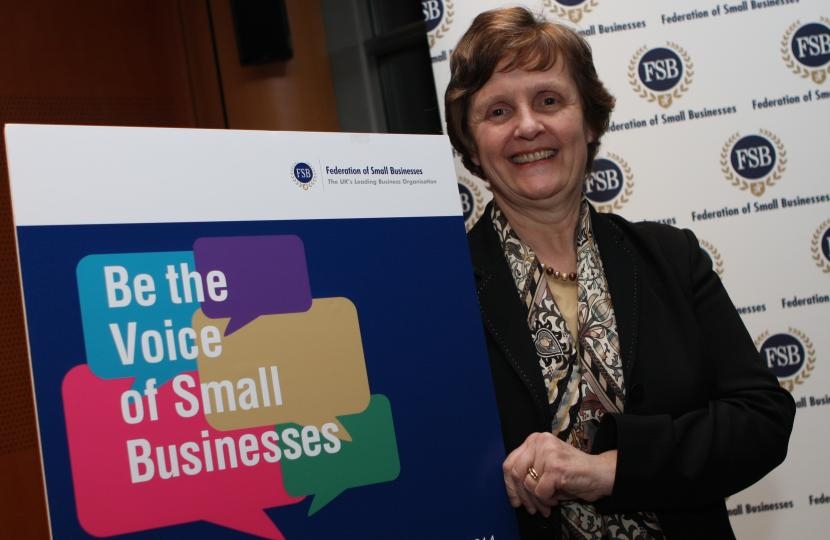
The impact of new laws on small businesses needs more attention, a high-level policy forum chaired by West Midlands Conservative MEP Anthea McIntyre heard.
The Better Regulation Policy Group, chaired by Anthea McIntyre MEP, was looking at ways to prevent new legislation holding back small enterprises as the engines of job creation across Europe.
The group, set up by the European Conservatives and Reformists Group of MEPs (ECR), met small business organisations and the European Commission to examine ways of creating a standardised system across the EU when drafting new legislation. The meeting, held in the European Parliament, proposed that an "SME test" for Small and Medium sized Enterprises would put the needs and interests of small businesses at the heart of every decision that is made.
The tests would not be imposed or centralised, but the EU would act to distribute the basic principles of what works best and actively encourage governments and parliaments to 'think small first' when preparing and passing new laws and rules.
Patrick Gibbels, Secretary General of the European Small Business Alliance (ESBA) said: “The SME test too often is not properly implemented or, in some cases, not at all. Rather than executing a fully-fledged SME test, many Impact Assessments contain a few lines, stating that ‘this proposal is unlikely to adversely affect SMEs’ without any real arguments, supporting evidence or justification. This needs to change."
Maarit Nyman from the European Commission added: "The Commission is actively promoting the effective application of the SME test in all its policy decisions that involve an impact assessment. It is clear that if the other EU institutions could also apply the SME test where appropriate, it can only produce benefits to the business community and the citizens.
Miss McIntyre said: "The ECR is committed to helping small businesses to grow and the easiest way to achieve this is to tailor rules and regulations so that their impact on smaller businesses is always considered.
"Large multinationals have lobbying and compliance departments and armies of lawyers to influence and decipher legislation, but their potential rivals and start-ups have to spend a disproportionate amount of their time filling in forms and complying with rules. That means less time growing the business.
"We need to make sure that someone is thinking of them at all times, and this process is about trying to get lawmakers at the EU and national level to 'think small first'."

